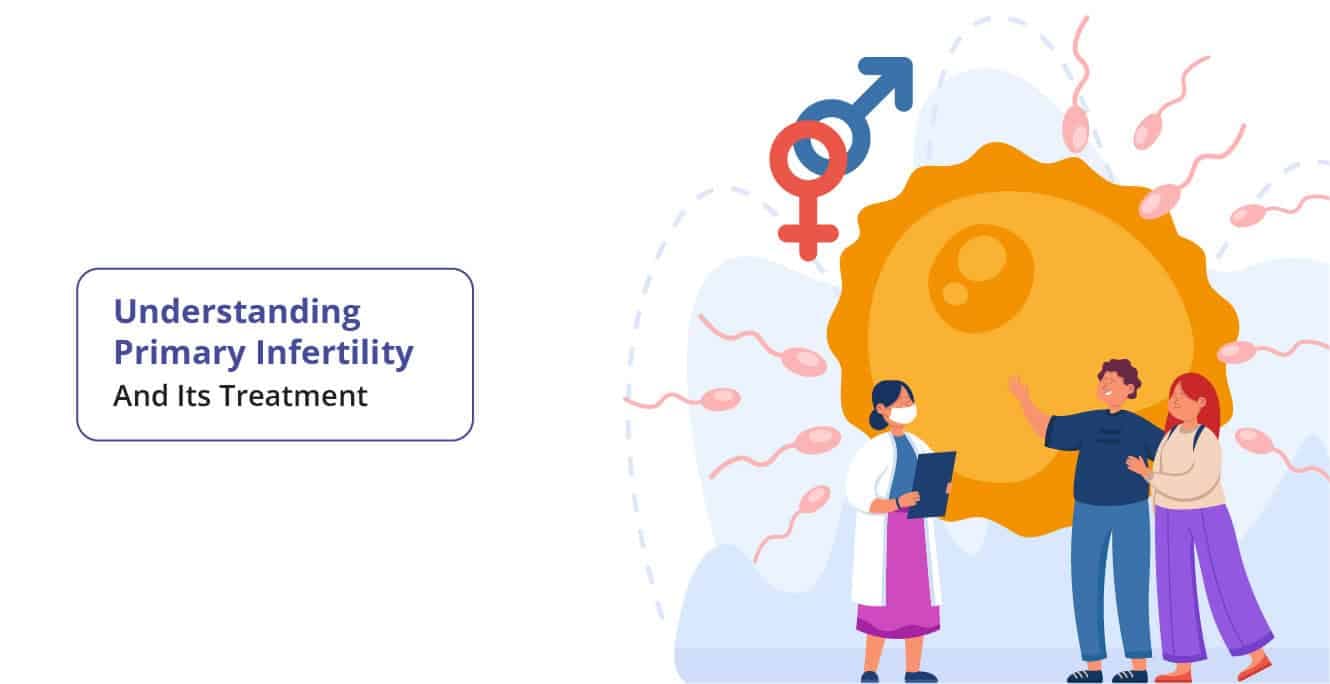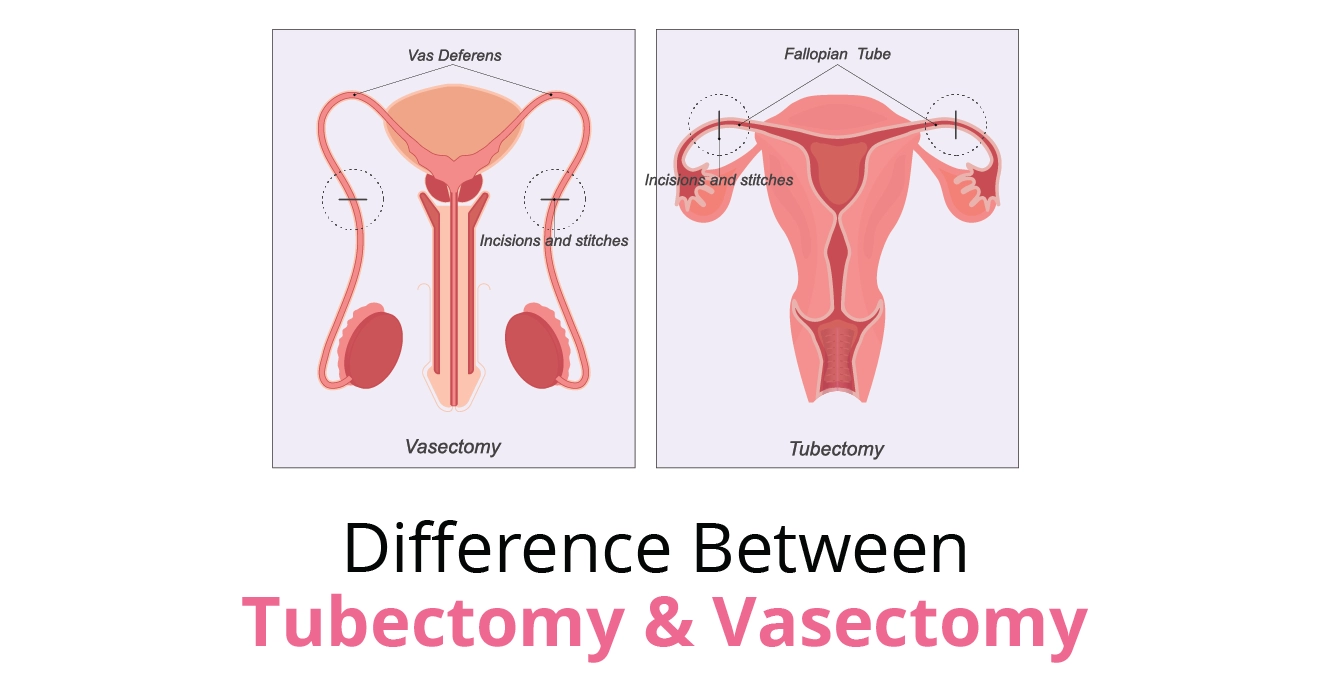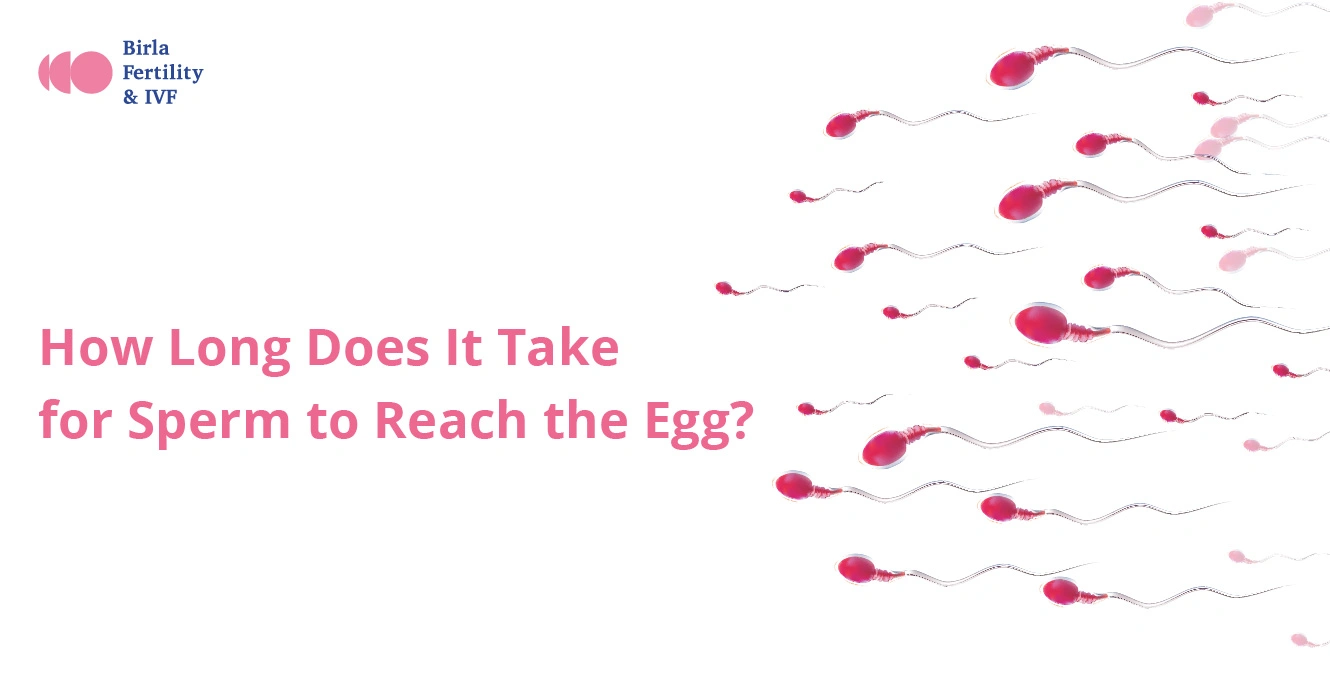
Understanding and Treating Primary Infertility: Steps to Conception

Table of Contents
- Key Takeaways
- What is Primary Infertility?
- Types of infertility
- Recognising the signs and symptoms of primary infertility
- Diagnosing primary infertility: Tests and evaluations
- Exploring the treatment options for primary infertility
- Managing primary infertility with lifestyle modifications
- Word from an expert
Key Takeaways
- Primary infertility is the inability to conceive after trying for a specified period.
- Factors causing primary infertility: Ovulatory disorders, structural issues, and male factors.
- Treatment options: From medications to regulate ovulation to surgical procedures and assisted reproductive technology (ART) like IVF.
- Lifestyle modifications can also improve fertility outcomes.
- Early evaluation by a fertility specialist is crucial for timely diagnosis and appropriate treatment to overcome fertility challenges.
For couples who dream of starting a family, infertility can be a tough hurdle to face. Primary infertility affects roughly 48 million couples globally, according to the World Health Organization (WHO). If you find yourself in this situation, you are not alone.
What is Primary Infertility?
Primary infertility refers to the inability to conceive after at least one year of regular, unprotected sexual intercourse, without any previous pregnancies. This condition can be attributed to factors affecting either partner or both partners.
It’s important to note that infertility is not uncommon. Global statistics indicate that about 15% of couples of childbearing age experience infertility. While specific recent data for the Indian subcontinent is limited, studies suggest that the prevalence of infertility in India ranges between 3.9% and 16.8%, varying across different regions and populations.
Types of infertility
Infertility can be categorised into several types, each with its own set of causes and impacts. Let’s take a closer look at the two main types: female infertility and male infertility.
Female infertility
Female infertility is often due to issues related to ovulation, the fallopian tubes, the uterus, or other reproductive health problems. Common causes include:
- Ovulation disorders: Failure to ovulate or irregular ovulation, often associated with conditions like polycystic ovary syndrome (PCOS).
- Tubal damage: Blockages or scarring in the fallopian tubes, which can result from pelvic inflammatory disease (PID), endometriosis, or surgery.
- Uterine or cervical abnormalities: Issues such as fibroids, polyps, or abnormalities in the shape of the uterus.
- Hormonal imbalances: Thyroid disorders, hyperprolactinemia, and other hormonal imbalances can affect fertility.
Male infertility
Male infertility is typically related to sperm quality, quantity, or mobility. Common causes include:
- Low sperm count or poor sperm quality: Issues with the shape, movement, or number of sperm.
- Blockages: Obstructions in the epididymis or vas deferens that prevent sperm from being released.
- Hormonal imbalances: Conditions like hypogonadism or pituitary tumors that affect testosterone levels.
- Lifestyle factors: Exposure to high heat, heavy use of alcohol or drugs, and smoking can also impact male fertility.
Primary infertility affects approximately 1 in 7 couples who have difficulty conceiving, despite having regular, unprotected sex for at least a year. Common causes include lack of regular ovulation, poor quality semen, blocked or damaged fallopian tubes, and conditions like endometriosis. Age, weight, sexually transmitted infections, smoking, and environmental exposures can also impact fertility.
Recognising the signs and symptoms of primary infertility
While there are no specific symptoms of infertility, certain signs and symptoms may suggest underlying issues that can contribute to fertility problems.
Female Infertility
In females, the signs and symptoms of primary infertility include:
- Irregular or absent menstrual periods: This can indicate hormonal imbalances that affect ovulation.
- Painful intercourse: Painful intercourse, also known as dyspareunia, can be a symptom of an underlying health condition such as endometriosis or pelvic adhesions that may affect fertility.
- Pelvic pain: Chronic pelvic pain can be associated with various conditions that can impact fertility, such as endometriosis or polycystic ovary syndrome (PCOS).
- Abnormal vaginal bleeding: Unusual bleeding between periods or after sex can be a sign of underlying reproductive issues.
Male Infertility
In males, the signs and symptoms of primary infertility include:
- Erectile dysfunction or low libido: These symptoms may occur due to hormonal imbalances or psychological factors.
- Reduced sperm count or motility: Low sperm count or poor sperm quality can affect fertility.
- Varicocele: Enlarged veins in the scrotum can impair sperm production.
- Obstruction of the vas deferens: Blockages in the tubes that carry sperm can prevent sperm from reaching the ejaculate.
It’s important to note that these signs and symptoms are not exclusive to primary infertility and can be caused by other factors.
Diagnosing primary infertility: Tests and evaluations
Identifying the underlying causes of primary infertility involves a series of tests and evaluations for both partners:
|
Tests for Women |
Tests for Men |
|
Ovulation Testing |
Semen Analysis |
|
– Urine ovulation predictor kits |
– Sperm count (number of sperm) |
|
– Basal body temperature (BBT) charting |
– Sperm motility (movement) |
|
– Blood tests (progesterone levels) |
– Sperm morphology (shape and structure) |
|
– Semen volume and pH |
|
|
Imaging Tests |
Physical Exam |
|
– Hysterosalpingography (HSG) to assess fallopian tubes |
– Examination of the testes for size and abnormalities |
|
– Pelvic ultrasound to examine uterus and ovaries |
– Examination of the penis and scrotum for abnormalities |
|
– Laparoscopy for direct visualisation of reproductive organs |
– Examination of varicocele (swelling of veins in the scrotum) |
|
Blood Tests |
Blood Tests |
|
– Anti-Müllerian Hormone (AMH) to assess ovarian reserve |
– Testosterone levels |
|
– Thyroid function tests (TSH, T3, T4) |
– Follicle-stimulating Hormone (FSH) for sperm production |
|
– FSH and LH levels to assess ovarian function |
– Luteinizing Hormone (LH) levels |
|
– Prolactin and estradiol levels |
|
|
Other Hormonal and Diagnostic Tests |
Imaging Tests |
|
– Androgen levels to detect hormonal imbalances |
– Scrotal ultrasound to check for abnormalities |
|
– Cervical mucus testing for ovulation and infection detection |
– Transrectal ultrasound to examine the prostate and seminal vesicles |
|
– Testicular biopsy (if needed for sperm extraction) |
|
|
Genetic Testing |
Genetic Testing |
|
– Karyotype analysis for chromosomal abnormalities |
– Karyotype analysis for chromosomal abnormalities |
|
– Testing for genetic mutations (e.g., Fragile X) |
– Genetic tests for Y chromosome microdeletions |
Exploring the treatment options for primary infertility
The treatment for primary infertility depends on the underlying cause and may involve various approaches. Let’s explore some of the most common treatments:
Medications
- Ovulation induction medications: Medications like clomiphene citrate and human menopausal gonadotropins (hMG) are commonly used to stimulate ovulation in women who have difficulty ovulating.
- Hormonal treatments: Gonadotropins and testosterone replacement therapy can be prescribed to address hormonal imbalances or stimulate sperm production in men.
Surgical procedures
- Fallopian tube repair: Surgery can be performed to repair blockages or damage in the fallopian tubes, which can restore fertility by enabling the egg and sperm to meet.
- Endometriosis treatment: Surgical procedures, such as laparoscopic surgery, are used to remove endometrial tissue in women with endometriosis, which can improve chances of conception.
- Varicocele repair: In men, surgery to repair varicoceles (enlarged veins in the scrotum) can enhance sperm quality and improve fertility outcomes.
Assisted Reproductive Technology (ART)
- Intrauterine Insemination (IUI): Healthy sperm is placed directly into the uterus around the time of ovulation to improve the chances of fertilisation.
- In Vitro Fertilisation (IVF): In this procedure, eggs are harvested from the ovaries and fertilised with sperm in a lab. The fertilised embryo is then transferred back into the uterus.
- Intracytoplasmic sperm injection (ICSI): ICSI may be used during IVF if semen quality is poor, where a single sperm is injected directly into the egg.
- Assisted hatching: A technique used during IVF to assist the embryo in attaching to the uterine lining, improving implantation chances.
The table below summarises the success rates of each treatment approach:
|
Method |
Success Rate |
|---|---|
|
Fertility medications (e.g., Clomid) |
35-45% per cycle (under 35) |
|
Hormone therapy |
Varies (depends on condition) |
|
Fallopian tube repair |
20-50% (within 2 years) |
|
Varicocele repair |
30-50% (within 1 year) |
|
IVF |
40% (under 35); 20% (38-40) |
|
Assisted hatching |
10-15% increase in success rates |
Managing primary infertility with lifestyle modifications
In addition to medical treatments, certain lifestyle changes can enhance your chances of conception:
Regular Exercise
- Cardiovascular exercises: Activities like running, swimming, cycling, and dancing can improve fertility. Aim for at least 150 minutes of moderate-intensity aerobic exercise weekly.
- Strength training: Building muscle mass through weightlifting or bodyweight exercises helps improve hormonal balance.
- Yoga and Pilates: These low-impact exercises enhance flexibility, balance, and reduce stress.
- Outdoor activities: Engaging in nature, such as hiking or gardening, can lower stress levels and improve well-being.
Diet and Nutrition
A balanced diet supports reproductive health and should include:
Vitamins and minerals: Folic acid, iron, vitamin B12, zinc, and selenium are essential for hormone production and foetal growth.
- Healthy fats: Omega-3 fatty acids from fish, nuts, and seeds support hormone balance.
- Whole grains: Provide fibre and B vitamins beneficial for reproductive function.
- Lean proteins: Include sources like poultry, fish, beans, and lentils.
- Fruits and vegetables: Rich in vitamins, minerals, and antioxidants essential for overall health.
Stress Management
Counselling and stress management techniques can support couples facing infertility:
- Individual therapy: One-on-one sessions with a therapist to address emotional impacts.
- Couples therapy: A safe space for partners to discuss feelings and challenges.
- Mindfulness and meditation: Helps reduce stress and improve focus.
- Cognitive-behavioral therapy (CBT): Identifies and challenges negative thought patterns.
- Relaxation techniques: Practices like deep breathing and guided imagery promote relaxation.
Word from an expert
Primary infertility can be a challenging and emotional journey, but it’s important to remember that you’re not alone. With the right diagnosis and treatment plan, many couples are able to achieve their dream of starting a family. Don’t hesitate to seek support from your partner, loved ones, and fertility specialists as you navigate this process.~ Dr. Gaurav Gujarathi
Our Fertility Specialists
Related Blogs
To know more
Birla Fertility & IVF aims at transforming the future of fertility globally, through outstanding clinical outcomes, research, innovation and compassionate care.
Had an IVF Failure?
Talk to our fertility experts

 Our Centers
Our Centers















